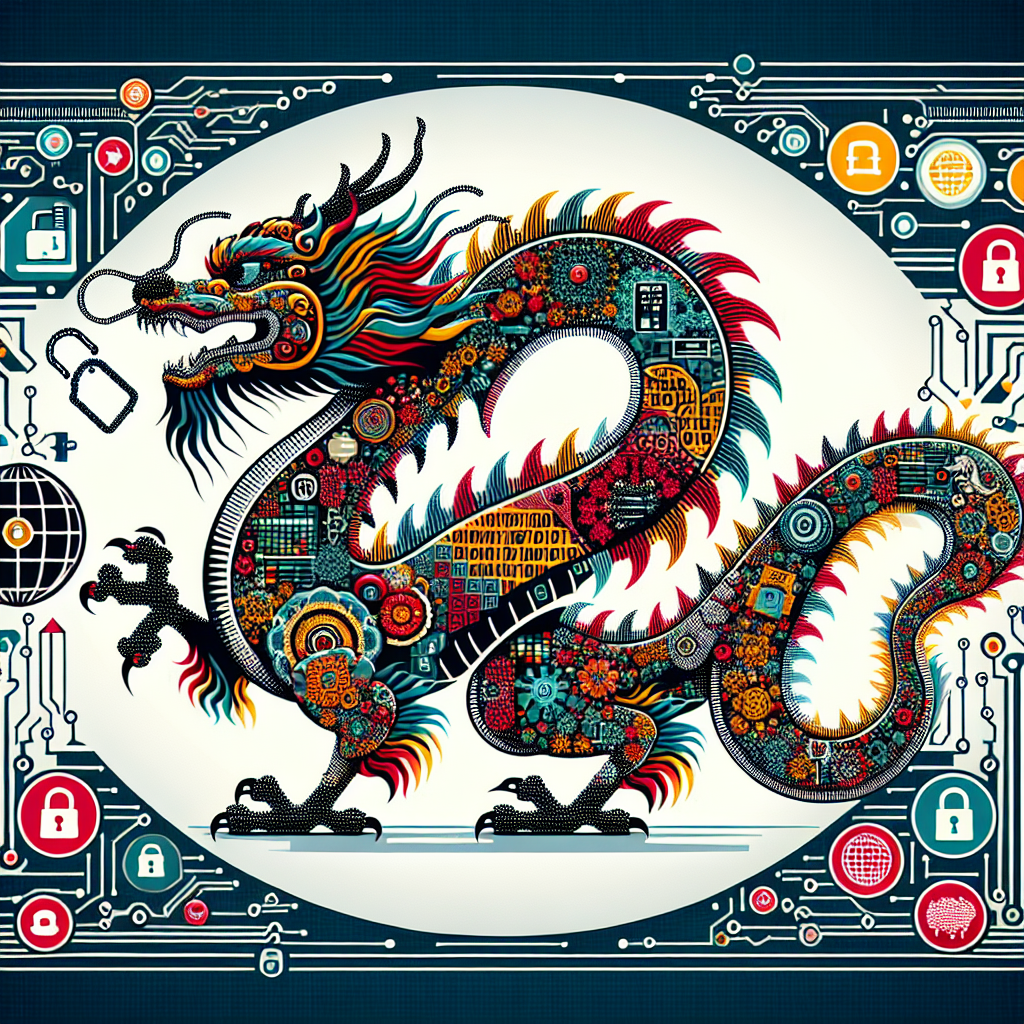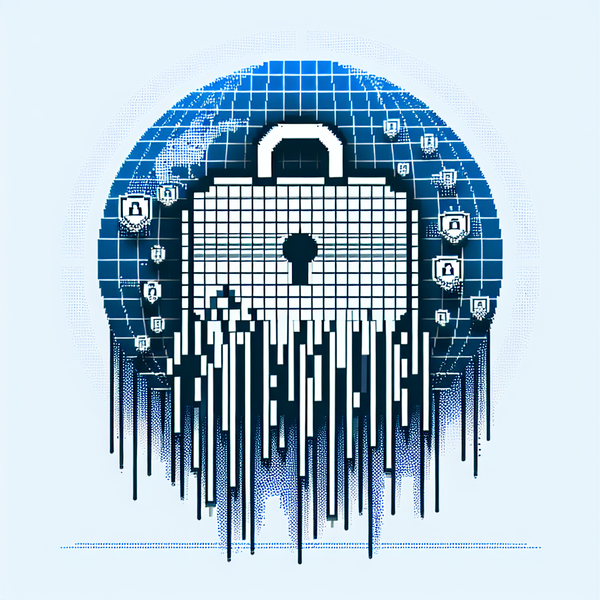Secret CISO 7/9: US State Dept Impersonation, Flutter Breach, Citrix Vulnerability, Chinese Hacker Arrest - A Global Cybersecurity Wake-Up Call

Welcome to today's edition of Secret CISO, where we unravel a tapestry of cybersecurity challenges and breakthroughs that are shaping the digital landscape. In a world where impersonation can breach the highest echelons of diplomacy, the US State Department is tightening its cybersecurity measures following a Marco Rubio impersonation incident that reached foreign ministers and a US governor.
Meanwhile, Flutter Entertainment grapples with a data breach affecting its Paddy Power and Betfair brands, and a home delivery pharmacy faces scrutiny for delayed breach notifications, raising compliance concerns. Luxury brands are not spared either, as a hacking incident exposes their compliance failures, while a Chinese data leak reveals the intricate web of contractors behind the Salt Typhoon threat actor.
On the tech front, a new Citrix vulnerability discovered by Rapid7 underscores the need for vigilant patching, and the arrest of a Chinese state-sponsored hacker on a US warrant highlights the geopolitical stakes in cybersecurity. The rise of malicious open-source packages and a massive browser hijacking campaign affecting millions of Chrome and Edge users further emphasize the need for robust security protocols.
In the realm of AI, the president of Signal warns of a security flaw in agentic AI, urging secure development practices to safeguard data privacy. Vulnerabilities in popular platforms like WooCommerce, Kubernetes, Discord, Windows, and Fortinet reveal the ongoing battle against potential exploits, with each flaw posing unique risks to data integrity and system security.
Stay informed and vigilant as we navigate these complex cybersecurity challenges together. Welcome to Secret CISO, where every insight is a step towards a more secure digital future.
Data Breaches
- US State Department Tightens Cybersecurity After Marco Rubio Impersonation: A security breach involving the impersonation of Marco Rubio led to unauthorized contact with foreign ministers and a US governor. This incident has prompted the US State Department to enhance its cybersecurity measures to prevent future impersonations and protect sensitive communications. Source: Financial Times.
- Flutter's Paddy Power and Betfair Customer Info Compromised: Flutter Entertainment has confirmed a data breach affecting its Paddy Power and Betfair brands, compromising personal information of its customers. The company is currently investigating the breach and working to secure its systems to prevent further unauthorized access. Source: CDC Gaming.
- Home Delivery Pharmacy Accused of Delayed Notification in Data Breach: A home delivery pharmacy is under scrutiny for allegedly delaying the notification of a data breach affecting patient information. This incident raises concerns about compliance with data breach disclosure regulations and the potential impact on affected individuals. Source: Gene Online.
- Data Breach Exposes Luxury Brands' Compliance Failure: A recent hacking incident has exposed customer data at high-end luxury brands, highlighting significant compliance failures. The breach has raised questions about the security measures in place to protect sensitive customer information. Source: The DONG-A ILBO.
- Chinese Data Leak Reveals Salt Typhoon Contractors: A data leak has revealed the involvement of private firms in the operations of the Chinese nation-state threat actor known as Salt Typhoon. This leak exposes the contractors' roles and their clients, raising concerns about cybersecurity and international relations. Source: GovInfoSecurity.
Security Research
- Security researcher discovers new Citrix vulnerability: A new vulnerability in Citrix Virtual Apps has been discovered by a researcher at Rapid7, highlighting ongoing security challenges in widely-used enterprise software. This discovery underscores the importance of continuous monitoring and patching to protect sensitive data and maintain system integrity. Source: Cyber Daily.
- Chinese state-sponsored hacker arrested on U.S. warrant: The U.S. Department of Justice has arrested a Chinese state-sponsored hacker involved in the theft of COVID-19 research and confidential information related to American policymakers. This arrest highlights the ongoing geopolitical tensions and the critical need for robust cybersecurity measures to protect sensitive information. Source: Department of Justice.
- Malicious Open Source Packages Spike 188% YoY: Security researcher Garrett Calpouzos has reported a 188% year-over-year increase in malicious open-source packages. This alarming trend emphasizes the need for developers to be vigilant and implement stringent security checks when integrating open-source components into their projects. Source: Dark Reading.
- Massive browser hijacking campaign infects 2.3M Chrome, Edge users: A large-scale browser hijacking campaign has affected 2.3 million users of Chrome and Edge, exploiting extensions that were not initially malware-laden. This incident highlights the importance of scrutinizing browser extensions and maintaining updated security protocols to prevent unauthorized access and data breaches. Source: The Register.
- AI for Good: Signal president warns of agentic AI security flaw: The president of Signal has raised concerns about a security flaw in agentic AI, which could potentially allow unauthorized access to sensitive data. This warning serves as a reminder of the critical need for secure AI development practices to prevent exploitation and ensure data privacy. Source: Computer Weekly.
API Security
- WCFM – Frontend Manager for WooCommerce Vulnerability: A vulnerability in the WCFM – Frontend Manager for WooCommerce plugin allows unauthenticated attackers to modify plugin settings, including payment details and API configurations, due to a missing capability check. This affects all versions up to 6.7.16. Source.
- MCP Server Kubernetes Command Injection: The MCP Server Kubernetes is vulnerable to command injection due to unsanitized input parameters in the child_process.execSync call. This flaw allows attackers to execute arbitrary system commands, potentially leading to remote code execution. Source.
- Discord IP Cache Poisoning (CVE-2025-48903): A proof-of-concept exploit for CVE-2025-48903 demonstrates how to perform a cache poisoning attack on Discord's caching API, triggering HTTP requests from targeted users. This vulnerability highlights risks in API handling of metadata. Source.
- Windows StateRepository API Tampering (CVE-2025-49723): This vulnerability in the Windows StateRepository API allows authorized attackers to perform unauthorized tampering due to missing authorization checks, posing a significant risk to data integrity. Source.
- Fortinet FortiOS and FortiProxy Authentication Flaw (CVE-2024-52965): A critical authentication vulnerability in Fortinet FortiOS and FortiProxy allows API users to log in using an API key and PKI user certificate, even if the certificate is invalid. This affects multiple versions, posing a severe security risk. Source.
Sponsored by Wallarm API Security Solution
Final Words
As we wrap up today's edition of Secret CISO, it's clear that the cybersecurity landscape is as dynamic as ever. From the US State Department's tightened security measures following a high-profile impersonation incident to the arrest of a Chinese state-sponsored hacker, the need for robust cybersecurity practices is more pressing than ever.
We've also seen how vulnerabilities in popular platforms like Citrix and WooCommerce can pose significant risks, underscoring the importance of continuous vigilance and timely patching. Meanwhile, the rise in malicious open-source packages and large-scale browser hijacking campaigns remind us of the ever-evolving threats in the digital world.
As we navigate these challenges, let's not forget the importance of sharing knowledge and insights. If you found today's newsletter informative, please consider sharing it with your friends and colleagues. Together, we can build a more secure digital future.
Stay safe, stay informed, and see you in the next edition of Secret CISO!




